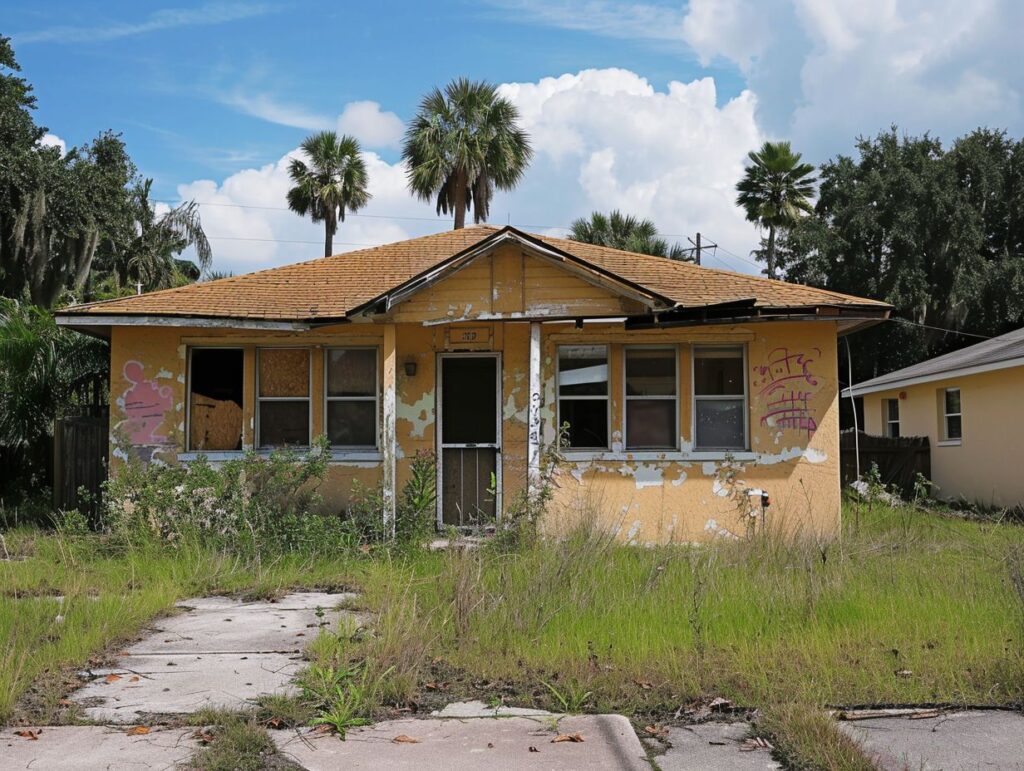Are you considering investing in real estate in Florida?
There are many factors to consider, from choosing the right property to financing options and tax implications.
In this comprehensive article, we will explore what investment properties are, the types of properties that can be considered investments, and why Florida is a popular destination for real estate investment.
We will also discuss how to choose the right investment property, finance it, manage and maintain it, and navigate the legal considerations of owning investment properties in the Sunshine State.
Whether you’re a seasoned investor or just starting out, this guide will provide you with valuable insights to help you make informed decisions when it comes to handling investment properties in Florida.
Key Takeaways:
- Investment properties in Florida can be a lucrative venture due to its strong real estate market and popularity as a tourist destination.
- When choosing an investment property in Florida, consider factors such as location, potential rental income, and property management options.
- Before purchasing an investment property in Florida, it’s important to understand the tax implications, financing options, and legal considerations involved.
What Are Investment Properties?
Investment properties are real estate assets acquired with the purpose of generating a return on the investment, either through rental income, future resale, or a combination of both. These properties can be residential, commercial, or industrial and function as substantial elements of an individual’s or a corporation’s investment portfolio.
What Types of Properties Can Be Considered as Investments?
Various types of properties can be viewed as investments, such as residential rentals, short-term rentals like those on Airbnb, commercial buildings, and industrial properties.
Residential rentals have experienced a growth in demand due to the increased flexibility and independence they provide, while short-term rentals on platforms like Airbnb have gained popularity for their potential to generate higher rental income.
Commercial buildings are subject to economic conditions and market trends, with location being a critical factor to consider in investment analysis. On the other hand, industrial properties may be influenced by technological advancements and changes in supply chain logistics. Factors like zoning regulations, tax implications, and tenant rights can have a significant impact on the profitability of these investment properties.
Why Invest in Florida?
Florida is recognized as a popular destination for real estate investment because of its favorable market trends, diverse location options, and strong economic growth. The state’s appealing climate, tourism industry, and population growth contribute to its attractiveness for both domestic and international investors.
What Makes Florida a Popular Destination for Real Estate Investment?
The popularity of Florida as a real estate investment destination stems from its varied locations, including Miami, Orlando, Tampa, Clearwater, and Jacksonville, each presenting distinct opportunities for investors.
Miami is renowned for its lively nightlife and picturesque beaches, drawing in high-end real estate investors in search of luxury properties with high rental demand.
Orlando, with attractions like Disney World and Universal Studios, boasts a robust rental market driven by tourism, making it a preferred choice for investors seeking consistent rental income.
Tampa‘s expanding tech sector fuels housing demand, creating investment prospects for those interested in the growing market.
Clearwater‘s allure lies in its scenic waterfront properties, appealing to individuals looking for vacation rentals or second homes with waterfront views.
How to Choose the Right Investment Property in Florida?
Selecting the appropriate investment property in Florida necessitates comprehensive market research, budget analysis, and property evaluation to confirm the investment is in line with financial objectives and market conditions.
What Factors Should Be Considered When Choosing an Investment Property in Florida?
When considering an investment property in Florida, important factors to evaluate include the property’s location, the effectiveness of property management, and a well-defined exit strategy.
The property’s location can significantly influence its potential for rental income and property value appreciation. A strategic location near amenities, schools, and transportation hubs can attract high-quality tenants and guarantee a stable rental income.
Selecting a dependable property management company is crucial to oversee daily operations, maintenance, and tenant interactions, ensuring the property is well-maintained and tenants are content.
Having a clearly defined exit strategy enables investors to make informed decisions on whether to retain, sell, or reposition the property in the future.
How to Finance an Investment Property in Florida?
Financing an investment property in Florida can be accomplished through a range of options, such as traditional mortgages, private loans, and investment groups, each suited to different budget requirements and investment objectives.
What Are the Different Financing Options for Investment Properties in Florida?
Various financing options for investment properties in Florida include conventional mortgages, hard money loans, and Real Estate Investment Trusts (REITs).
Conventional mortgages are a common choice, featuring competitive interest rates and extended repayment terms. Typically, applicants need a solid credit score, stable income, and a down payment of approximately 20% to qualify.
On the other hand, hard money loans are collateral-based loans with quicker approval processes but higher interest rates. Eligibility for these loans is primarily determined by the property itself rather than the borrower’s financial background.
REITs offer a more hands-off approach to real estate investment, enabling investors to purchase shares of properties without the direct ownership responsibilities. While they provide diversification and liquidity benefits, returns may be comparatively lower than those from direct ownership.
What Are the Tax Implications of Owning Investment Properties in Florida?
Ownership of investment properties in Florida involves several tax considerations, such as property taxes, federal income taxes, and specific regulations like FIRPTA for foreign sellers. There are also opportunities for tax deferral through 1031 Exchanges.
How Are Investment Properties Taxed in Florida?
Investment properties in Florida are subject to property taxes, federal income taxes, and for foreign sellers, FIRPTA regulations, with opportunities to defer capital gains taxes through a 1031 Exchange.
Property taxes are calculated based on the assessed value of the property by the local government authorities. This can vary depending on the area and the property’s value.
In the case of FIRPTA, foreign sellers are required to pay taxes on the gains made from selling US property. A 1031 Exchange allows investors to defer capital gains taxes by reinvesting the proceeds into a like-kind property within a set timeframe, thus keeping more funds available for future investments.
How to Manage and Maintain Investment Properties in Florida?
The effective management and maintenance of investment properties in Florida require:
- Regular property inspections
- Timely repairs
- Efficient property management
to maximize the property’s value and income potential.
What Are the Responsibilities of a Property Owner in Florida?
Property owners in Florida have the responsibility of maintaining the property’s condition, ensuring compliance with local regulations, and effectively managing tenant relationships.
Property management professionals play a crucial role in assisting property owners with these responsibilities. They offer expertise in handling legal aspects such as lease agreements, eviction processes, and property inspections.
Additionally, property managers oversee maintenance tasks like repairs, landscaping, and regular inspections to guarantee the property’s safety and good condition. They serve as a connection between owners and tenants, addressing concerns promptly and facilitating smooth communication. By enlisting the services of a property management company, owners can streamline operations and optimize the value of their investments.
What Are the Common Maintenance Issues for Investment Properties in Florida?
Common maintenance issues for investment properties in Florida typically involve HVAC system failures, plumbing problems, roof repairs, and pest control.
HVAC system failures can often be avoided through regular filter changes and professional annual inspections to ensure efficient operation.
Vigilance regarding leaks and prompt addressing of plumbing problems can prevent larger issues in the future.
Regular roof repairs are necessary to safeguard the property from water damage, and routine inspections can identify potential problems early on.
Pest control is also crucial, and deterring pests can be achieved by sealing entry points and maintaining cleanliness on the property.
Establishing a maintenance budget and conducting regular property inspections are essential practices for effectively managing these issues.
What Are the Legal Considerations for Owning Investment Properties in Florida?
Ownership of investment properties in Florida requires managing several legal aspects, such as state and local regulations, laws regarding short-term rentals, homeowner association fees, and adherence to property management standards.
What Are the Laws and Regulations Surrounding Investment Properties in Florida?
Investment properties in Florida are subject to various laws and regulations, including zoning laws, short-term rental regulations, and HOA fees that can affect the property’s use and profitability.
Zoning laws in Florida regulate how properties can be used in different areas, dictating elements such as permissible building sizes, land use types, and property setbacks.
In terms of short-term rentals like Airbnb, specific laws govern issues such as occupancy limits, noise restrictions, and rental duration.
Homeowners’ Association (HOA) fees play a crucial role in maintaining community standards and amenities. To stay compliant with these regulations, property owners should familiarize themselves with local ordinances, obtain necessary permits, adhere to occupancy restrictions, and ensure prompt payment of HOA fees to avoid penalties.
Frequently Asked Questions
What are the tax implications for owning investment properties in Florida?
As a property owner in Florida, you will be subject to state and federal taxes on your investment properties. This may include property taxes, capital gains taxes, and income taxes. It is important to consult with a tax professional to understand your specific tax obligations.
What is the process for buying an investment property in Florida?
The process for buying an investment property in Florida is similar to buying any other property. You will need to research the market, find a suitable property, secure financing, and go through the closing process. It is recommended to work with a real estate agent who specializes in investment properties to guide you through the process.
What are some popular areas for investment properties in Florida?
Some popular areas for investment properties in Florida include Miami, Orlando, Tampa, and Jacksonville. These cities are known for their strong rental markets and potential for appreciation in property values.
What are some important factors to consider when managing investment properties in Florida?
As with any investment property, it is important to consider factors such as location, property condition, rental demand, and potential for future growth. In addition, being aware of state and local laws and regulations, as well as having a solid understanding of landlord-tenant rights and responsibilities, are crucial for successful property management.
Can I use a property management company to handle my investment properties in Florida?
Yes, you can hire a property management company to handle your investment properties in Florida. This can be beneficial for out-of-state investors or those who do not have the time or resources to manage their properties themselves. The property management company can handle tasks such as finding tenants, collecting rent, and maintaining the property.
What are some potential risks associated with owning investment properties in Florida?
Like any investment, there are risks associated with owning investment properties in Florida. These may include a decline in property values, unexpected repairs, tenant turnover, and legal issues. It is important to thoroughly research the market and be prepared for potential risks before investing in any property.



























Rate this article:
Average rating 0 / 5. Vote count: 0
No votes so far! Be the first to rate this post.
No Comments yet!